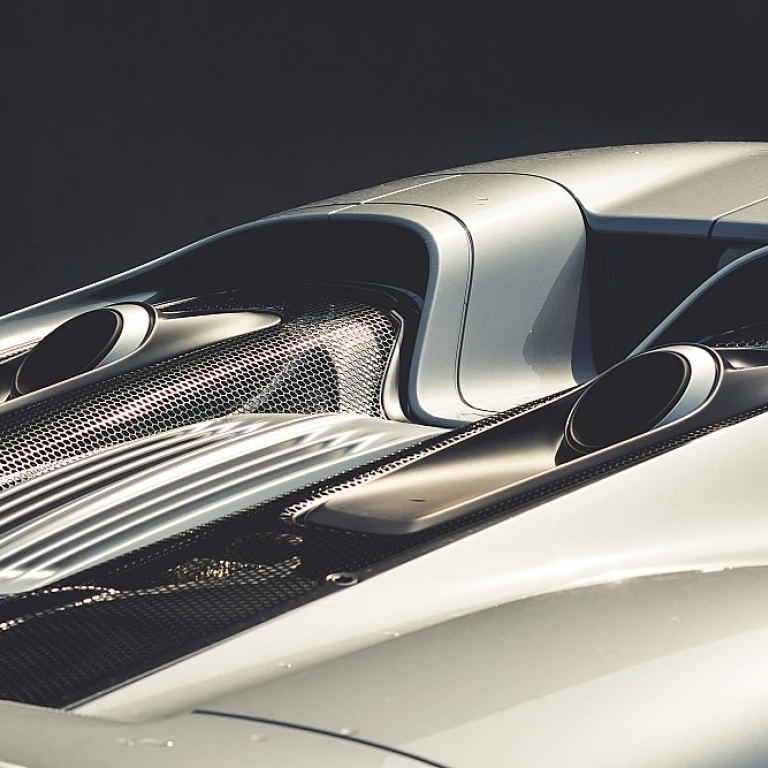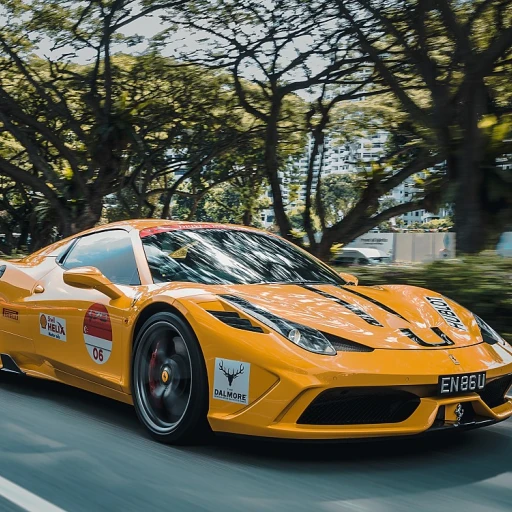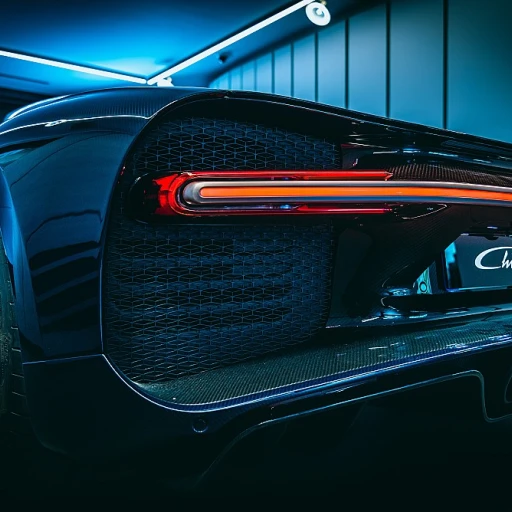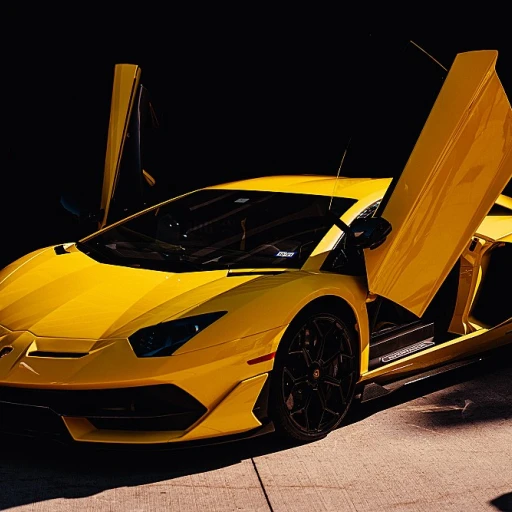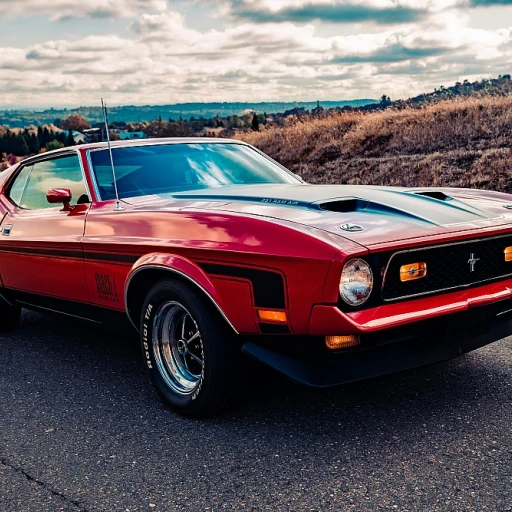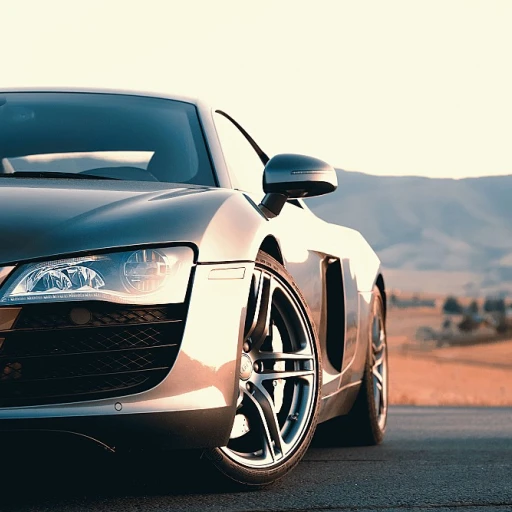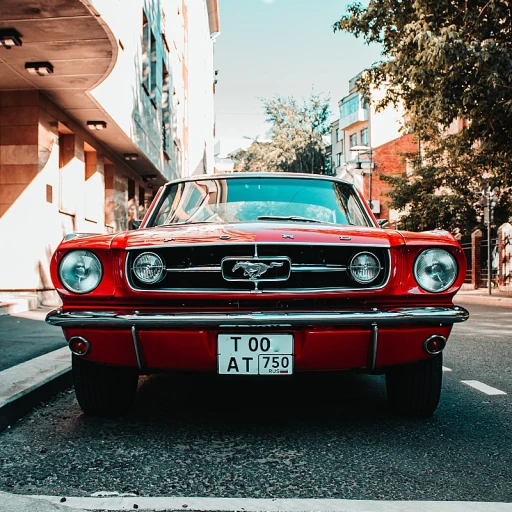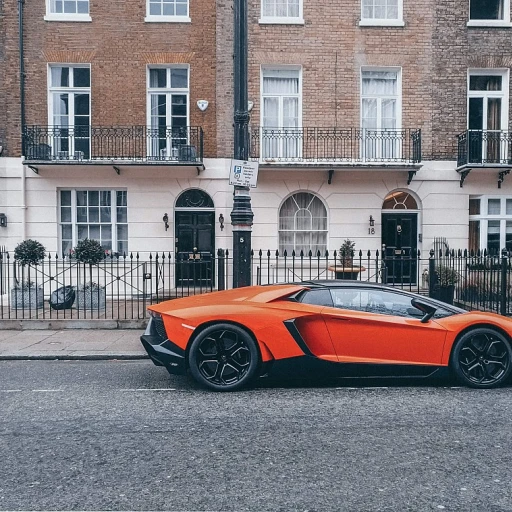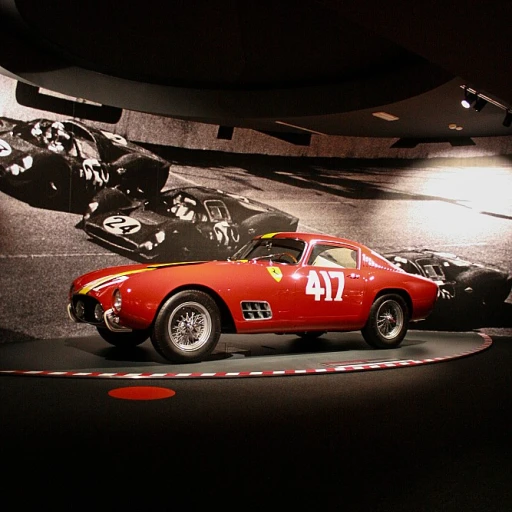
Understanding the Appeal of Luxury Cars
The Allure of Prestige and Performance
Luxury cars have long been synonymous with prestige, performance, and unparalleled comfort. For many, owning a luxury vehicle is not just about transportation; it's a statement of status and a testament to personal success. Brands like Mercedes Benz, BMW, and Audi have mastered the art of crafting vehicles that offer more than just a ride—they provide an experience.
When you think of luxury cars, the first thing that often comes to mind is their exquisite design and the meticulous attention to detail. From the sleek lines of a Mercedes Benz to the powerful stance of a BMW series, these vehicles are engineered to turn heads. But it's not just about aesthetics; it's about the feel of the leather, the precision of the controls, and the whisper-quiet cabin that isolates you from the hustle and bustle of city life.
More Than Just a Car: A Lifestyle Choice
Owning a luxury car is often seen as a lifestyle choice. It's about enjoying the finer things in life and appreciating the craftsmanship that goes into creating these vehicles. Whether it's the compact elegance of a Lexus or the commanding presence of a Cadillac SUV, luxury cars offer a driving experience that is second to none.
Moreover, the appeal of luxury vehicles extends beyond traditional combustion engines. The rise of luxury electric cars has introduced a new dimension to the market, blending sustainability with sophistication. Brands like Tesla have set new benchmarks, challenging traditional luxury brands to innovate and adapt.
Comparing the Best in Class
When it comes to choosing the best luxury car, the options are vast and varied. From the ultra-luxury of a Rolls Royce to the sporty elegance of an Aston Martin, each brand offers something unique. The market for luxury SUVs is also booming, with models like the Mercedes Benz G-Class and the BMW X5 leading the charge.
For those interested in exploring the market for the latest Rolls Royce Cullinan, this comprehensive guide provides an in-depth look at what makes this vehicle a standout choice in the realm of luxury SUVs.
Ultimately, the appeal of luxury cars lies in their ability to offer an unmatched blend of style, performance, and innovation. As we delve deeper into the costs and challenges of ownership, it becomes clear that these vehicles are more than just an expense—they are an investment in a lifestyle.
The Cost of Ownership
The True Investment Beyond the Wheel
When it comes to the allure of luxury cars, their financial implications extend beyond the sticker price. Many luxury car owners are drawn by the blend of cutting-edge technology, craftsmanship, and prestige these vehicles embody. Yet, accompanying the initial purchase is a series of recurring costs that may not be immediately apparent. Owning a luxury car translates to higher expenses in terms of insurance, due to the rarity and high value of these vehicles. Insurers often view luxury cars as higher risk, resulting in more expensive premiums. On top of that, these cars are equipped with high-performance engines that may require higher-grade fuel, adding to overall fuel costs. Moreover, depreciation is a key consideration with luxury cars, often influenced by the brand's reputation and specific models. While some vehicles might maintain their value over time, others may experience steep declines. As such, it's crucial to weigh whether the emotional appeal and the intangible benefits, like the status and driving experience, compensate for these financial factors. For those considering the elegance of renting rather than owning a luxury car, experience the elegance of renting a Rolls Royce Ghost might offer insights into bypassing some of the cost implications associated with ownership. Understanding these financial dynamics enables luxury car enthusiasts to make informed decisions, aligning with their lifestyle choices while managing expenses effectively.Maintenance Challenges
Crafting a Harmonious Relationship with Your Luxury Vehicle
Luxury cars are often viewed as the epitome of innovation, seamlessly combining elegance with cutting-edge features. However, owning such a masterpiece comes with its own set of responsibilities, particularly regarding maintenance, which directly influences whether your luxury car is an asset or an expense. Maintaining a luxury vehicle isn't just about the periodic oil change or tire rotation; it's a comprehensive process that demands attention to detail and an understanding of high-end automotive engineering. The intricacies involved in servicing these cars are significant, and here's why:- Specialized Expertise: Unlike standard vehicles, luxury cars require mechanics with specialized skills. These professionals are trained extensively for specific makes and models, ensuring that each aspect of the car receives the precise attention it needs. Finding a qualified service provider can sometimes be as challenging as maintaining the vehicle itself.
- Cost of Premium Parts: Luxury cars are built with precision-engineered parts that often have no substitutes. The cost of these parts can be significantly higher than those of a typical vehicle, turning routine fixes into considerably expensive endeavors.
- Advanced Technology Needs: Modern luxury vehicles are equipped with the latest technology, including advanced entertainment systems and autonomous driving features. Regular updates and checks on these systems are paramount to maintain their functionality and prevent potential depreciation.
- Personalized Features: As discussed in customization, owners often choose bespoke features tailored to their personal taste. These personalized options add a layer of complexity when it comes to repairs or updates, as bespoke parts may require custom solutions or replacements.
- Sustainability Initiatives: With growing attention toward eco-friendly alternatives, luxury car brands are embracing sustainability. This often means incorporating innovative materials and technologies that may require specialized handling and maintenance techniques.
Personalization and Customization
Elevating Uniqueness with Bespoke Features
In the world of luxury cars, personalization and customization are not just added extras; they are integral components that define the very essence of owning such vehicles. For owners, the opportunity to express individuality through bespoke features is irresistible. It’s these personalized elements that transform a luxury car from a mass-produced commodity into a unique masterpiece, reflecting the owner's personal style and taste. Customized interiors are a significant draw for luxury car enthusiasts—the ability to select from an array of premium materials, colors, and finishes for seats, dashboard, and trim sets ensures that the car interior mirrors personal aesthetics. In some cases, manufacturers offer such expansive customization options that virtually every panel and feature can be tailored. Leather, alcantara, bespoke embroidery, and even custom graphics are just some possibilities, providing an extraordinary level of personal touch. Beyond interiors, performance enhancements are another key area where customization shines. High-performance parts such as racing tires, custom exhaust systems, and advanced suspension kits are often chosen by those seeking a specific driving experience. These enhancements not only personalize the vehicle but also provide drivers with the thrill of experiencing a tailor-made ride. Performance aside, advanced technology integrations provide another layer of personalization. Infotainment systems, augmented reality navigation, and personalized climate control are some examples of how technology adapts to enhance the driving experience. The vehicle can effectively become a tech-savvy haven, perfectly suited to the owner’s needs. It's essential, however, to keep in mind the balance between personalization and the cost of ownership. Bespoke features, while enhancing the appeal and experience, often come with a significant price tag and may affect resale value. Moreover, personalized elements may require detailed repair in the future, potentially increasing the complexity and cost of maintenance. Ultimately, the joy of owning a luxury car is profoundly tied to the ability to turn every ride into a unique experience. Bespoke features not only offer a canvas for self-expression but also serve as a testament to the fascination and passion that drives this segment of automotive enthusiasts.The Role of Technology in Luxury Cars
Cutting-Edge Technology: Elevating the Driving Experience
Luxury cars are often at the forefront of automotive innovation, incorporating state-of-the-art technology that not only enhances performance but also elevates the overall driving experience. Besides the intrinsic value associated with the brand, technology plays a critical role in defining a vehicle's status as a luxury item.
One of the key technological aspects featured in luxury vehicles is advanced driver-assistance systems (ADAS). These systems are designed to provide an additional layer of safety and convenience, often including features such as adaptive cruise control, lane-keeping assist, and blind-spot monitoring. Such features not only offer peace of mind but also position these vehicles as some of the safest on the road.
Another significant technological trend in luxury cars is the integration of cutting-edge entertainment and connectivity options. In-car entertainment systems now boast capabilities that rival those of high-end home-theater setups, with premium audio systems and seamless smartphone integration as standard offerings. These features cater to the car owner's desire for comfort and prestige, ensuring every journey is both enjoyable and productive.
The importance of technology extends beyond entertainment and safety. Luxury car manufacturers are increasingly focusing on sustainability through hybrid and electric vehicle technology. This shift not only aligns with global environmental trends but also caters to the growing demand from consumers for eco-friendly, yet high-performance vehicles.
The technological advancements found in luxury cars underline the commitment of manufacturers to blend opulence with innovation, addressing both consumer demand and market trends. Consequently, technology is a pivotal factor in deciding whether a luxury car serves as a valuable asset or simply an extravagant expense.

